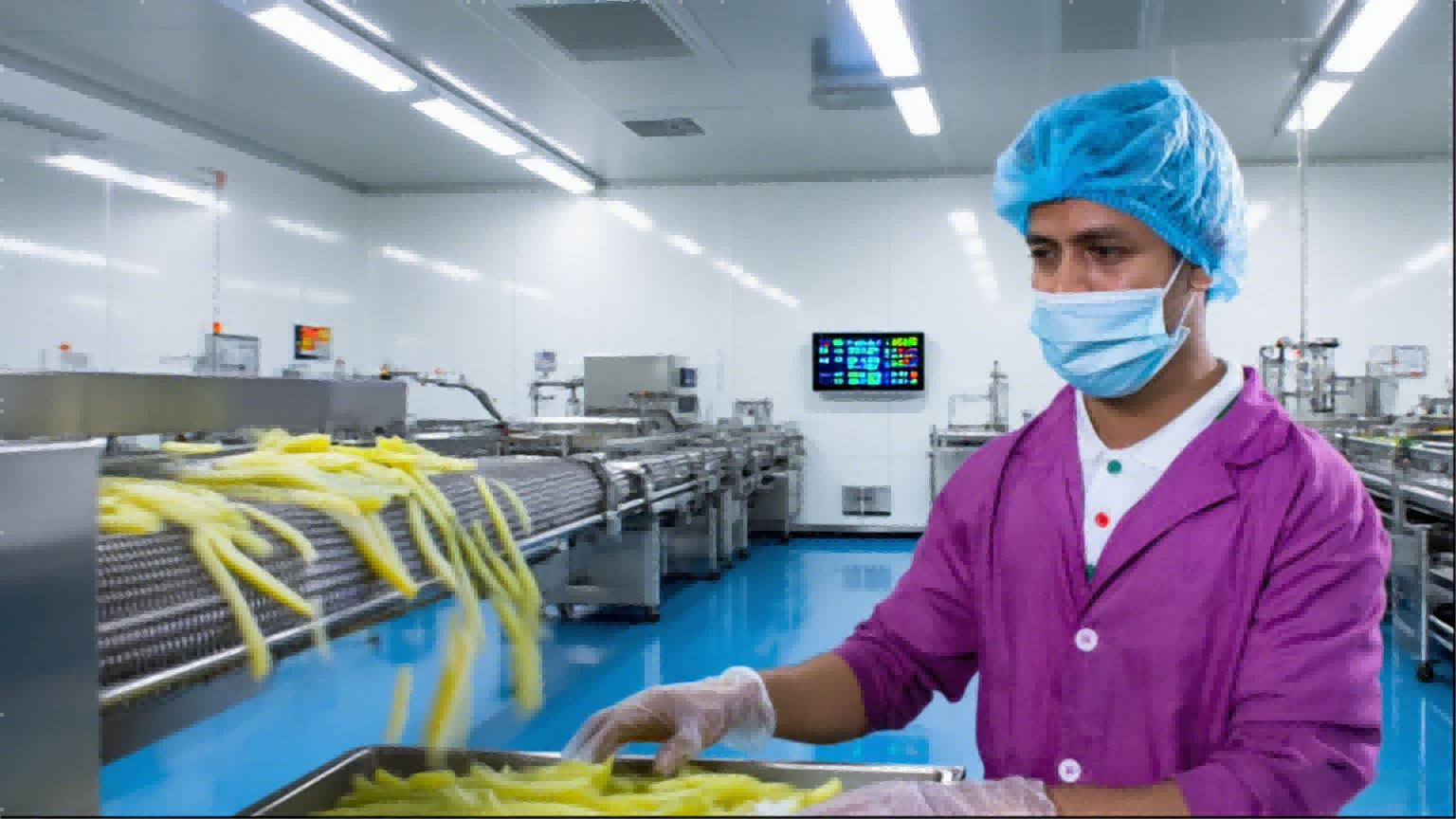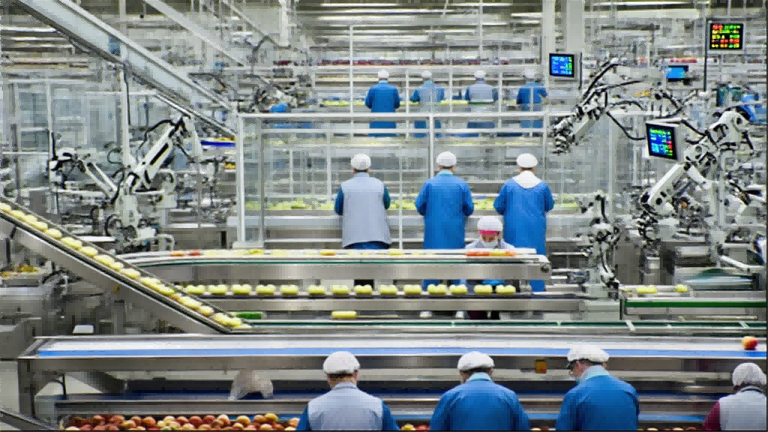
Food Production
Selecting a reliable food flavor manufacturer depends on transparency, certifications, clean labeling, and strict quality assurance. Leading companies provide full ingredient disclosure and maintain robust testing protocols. Sample testing and flavor matching help ensure product consistency and customer satisfaction. Technical expertise guides clients through product development. Credible sources such as the FDA and FEMA support these best practices in the industry.
Full ingredient transparency builds trust between manufacturers and clients. Leading food flavor manufacturers follow strict safety evaluations, often overseen by organizations like the Flavor and Extract Manufacturers Association (FEMA). FEMA’s independent Expert Panel reviews the safety of flavor ingredients under the FEMA GRAS program, making safety information available to the public. However, most companies do not disclose specific flavor ingredients. The U.S. Food and Drug Administration (FDA) does not require disclosure of individual chemicals if they are Generally Recognized as Safe (GRAS). Manufacturers often label ingredients as “natural flavor” to protect proprietary formulas. This approach keeps trade secrets secure while ensuring consumer safety through rigorous third-party evaluation and compliance with regulatory standards.
Tip: Always request allergen information and traceability documentation from your supplier to ensure product safety and compliance.
Reference: FDA – Food Ingredients & Packaging
Manufacturing openness signals a manufacturer’s commitment to quality and client partnership. Top companies foster collaboration among flavor scientists, chefs, technologists, and marketers. They use open innovation platforms and partnerships to drive creativity and share knowledge. Many leading manufacturers, such as McCormick and FONA International, provide clients with transparent access to regulatory information and maintain dedicated customer care services. These companies share detailed insights into safety and quality standards, supply chain management, and manufacturing processes. This level of openness helps clients understand the rigor behind each product and builds long-term trust.
Reference: FEMA – About FEMA
Clean label standards have become a top priority for food and beverage brands. While no single regulatory body defines “clean label,” manufacturers must comply with existing frameworks such as the FDA’s Nutrition Facts Label and the Food, Drug, and Cosmetic Act. The Federal Trade Commission (FTC) also requires that all label claims are truthful and substantiated. Clean label claims often include terms like “Natural,” “Natural WONF,” “Type,” and various organic certifications. For example, “Natural” flavors must come entirely from the named natural source, while “Natural WONF” allows for additional natural flavoring materials. Independent third-party certifications, such as the Clean Label Project or Non-GMO Project, help validate these claims.
Comparison of Clean Label Claims
| Claim Type | Definition | Regulatory Reference |
| Natural | Derived entirely from the named natural source | FDA, FEMA |
| Natural WONF | Natural flavor from the named source plus other natural flavoring materials | FEMA, Industry Standards |
| Type | Derived from natural ingredients other than the named product | FEMA |
| Organic Certified | Meets USDA organic standards | USDA, National Organic Program |
Reference: USDA – Organic Labeling Standards
Note: Clean label standards continue to evolve. Manufacturers should stay updated with the latest FDA, USDA, and industry association guidelines to ensure compliance and consumer trust.
Reference: FTC – Advertising and Marketing Basics
Food flavor manufacturers must demonstrate robust food safety management through recognized certifications. Major food companies and retailers require suppliers to hold several key certifications before entering global markets. These certifications help ensure regulatory compliance, reduce risks, and build trust with clients.
Key Food Safety Certifications for Flavor Manufacturers
| Certification | Region/Market | Focus Area |
| HACCP | Global | Hazard control |
| ISO 22000 | Global | Food safety management |
| FSSC 22000 | Global | Facility-level safety |
| SQF | North America | Comprehensive safety |
| BRCGS | Europe | Retailer requirements |
| IFS | Europe | Retailer requirements |
| USDA Organic | US | Organic compliance |
| Halal/Kosher | Global | Religious dietary needs |
Reference: FDA – Food Safety Modernization Act (FSMA)
Manufacturers must comply with strict regulatory standards in every market they serve. In the United States, the Food and Drug Administration (FDA) oversees food flavor regulations. The FDA allows companies to use ingredients that are Generally Recognized As Safe (GRAS), which streamlines approval for many flavors. The Flavor and Extract Manufacturers Association (FEMA) operates an expert panel that reviews scientific data and determines ingredient safety. In Europe, the European Food Safety Authority (EFSA) requires mandatory pre-market approval for all flavors and additives. The EU mandates labeling of additives with E numbers and requires extensive allergen disclosure. These regulatory frameworks differ in philosophy: the US system emphasizes post-market oversight, while Europe adopts a precautionary approach with pre-market safety reviews.
Reference: FEMA – Safety Evaluation
Buyers must review comprehensive documentation to confirm compliance with food safety regulations. Accurate and complete records support traceability and accountability throughout the supply chain. Essential documents include:
Maintaining these records ensures audit readiness and supports regulatory compliance. Digital record-keeping systems improve accessibility and security. Buyers should verify the credibility of certifying bodies and confirm that certifications align with recognized standards. Ongoing supplier evaluation and risk monitoring help prevent fraud and ensure the authenticity of certifications.
Tip: Request recent audit reports and review traceability documentation before finalizing supplier agreements.
Reference: European Food Safety Authority (EFSA) – Food Additives

Cheese Production
Food flavor manufacturers rely on rigorous quality control processes to guarantee safety and consistency. They implement systematic checks at every stage, starting with supplier selection and ingredient auditing. Raw materials undergo inspection upon arrival to verify compliance with quality standards. During production, chemical testing and nutritional analysis monitor product composition. Manufacturers use advanced technologies such as gas chromatography-mass spectrometry (GC-MS) to detect impurities and confirm flavor profiles. Sensory evaluation, including taste, smell, and appearance, serves as a final check before products reach the market.
Manufacturers maintain batch-to-batch consistency through automated batching systems. These systems weigh and dispense ingredients with precision, minimizing variations. Automation reduces human error and speeds up production. Real-time monitoring software tracks temperature, processing times, and ingredient additions. Automated recipe management prevents deviations from specifications. Digital record-keeping supports traceability and regulatory compliance. By repeating identical steps for each batch, manufacturers achieve consistent taste, texture, and safety.
Third-party audits play a vital role in maintaining high standards for food flavor manufacturers. Independent auditors verify that manufacturing practices comply with food safety regulations and industry standards. Audits include program reviews, physical inspections, and observations of employee practices. Auditors assess adherence to good manufacturing practices (GMP), food defense, and food fraud mitigation. Customized audit programs target specific risk areas, such as allergen verification and foreign supplier compliance.
These audits help manufacturers identify compliance gaps and prepare for regulatory requirements. Auditors provide objective assessments based on extensive food manufacturing experience. Annual third-party audits ensure that manufacturers meet or exceed industry specifications. Customers gain confidence in product safety and quality through transparent audit results.
Traceability systems ensure complete visibility and accountability throughout the manufacturing process. Manufacturers assign unique lot numbers to raw materials, ingredients, and finished products. Lot data is captured at every stage, including receiving, production, packaging, storage, and distribution. Standardized lot numbering includes production date, line, and supplier batch, simplifying coordination and recall processes.
Inventory management systems link lot numbers with real-time data, enabling quick location and quarantine of affected stock. Manufacturers maintain bi-directional traceability by tracking both upstream ingredient sourcing and downstream distribution. Automation technologies such as barcode and RFID scanning improve accuracy and efficiency. Staff receive training and follow clear standard operating procedures to reduce errors in lot tracking.
Real-time batch and lot tracking monitor ingredient and product movement across all production stages. Automated barcode scanning simplifies data capture. Seamless integration across procurement, production, and distribution enhances coordination. Detailed reporting and analytics provide insights into traceability, quality control, and inventory management. These features support operational integrity, rapid response to quality issues, and compliance with food safety standards.
Flavor matching stands as a critical step in developing successful food products. Manufacturers use scientific analysis and creative experimentation to replicate or enhance target flavors. Trained flavorists rely on gas chromatography and flavor compound libraries to identify key chemical components. They balance taste, aroma, and texture, considering both cultural and emotional factors. Advanced technologies, such as Reaction Flavor Technology, simulate cooking reactions to create complex profiles. Modern development also leverages databases and machine learning to predict effective combinations, allowing manufacturers to innovate beyond traditional methods. This process ensures that flavors resonate with consumers and maintain consistency across batches.
Food flavor manufacturers play a vital role in supporting full-scale product development. They collaborate with clients from concept to commercialization, offering expertise in ingredient sourcing, clean-label creation, and scaling production. Manufacturers provide innovation insights, regulatory guidance, and taste modulation technologies. They help clients navigate technical documentation and compliance requirements, reducing complexity and accelerating time to market. Pilot-scale capabilities allow for iterative product trials and refinements, ensuring products meet consumer expectations.
Clients benefit from a partnership approach, where manufacturers maintain continuous dialogue and incorporate rapid feedback. This holistic support compresses development timelines and ensures smooth transitions from bench testing to full-scale manufacturing. Guangdong Unique Flavor, for example, offers tailored solutions and technical strengths through its CUIGUAI Flavor food-grade flavoring, meeting diverse market needs with precision and reliability.
Tip: Request sample testing and scale-up validation to confirm product performance before commercial launch.
Reference: Food Business News – Custom Flavor Trends
Custom flavor creation demands a blend of scientific knowledge and culinary skill. Flavor scientists, chefs, and product developers work together to analyze ingredient interactions and sensory perception. They apply advanced technologies, such as encapsulation and extraction, to maintain stability and shelf life. Expertise in chemistry and sensory science guides the development of unique, scalable profiles that align with brand identity.
Manufacturers follow a structured process:
Technical Expertise Required for Custom Flavor Creation
| Expertise Area | Application |
| Chemistry | Ingredient interaction analysis |
| Sensory Science | Flavor perception evaluation |
| Culinary Arts | Authentic profile replication |
| Technology Platforms | Stability and shelf life extension |
| Market Insights | Consumer trend alignment |
Reference: IFT – Sensory and Consumer Science
A reliable food flavor manufacturer forms the backbone of successful product development and brand reputation. Companies must evaluate suppliers with a structured approach to ensure consistent quality, safety, and innovation.
Selecting a reliable food flavor manufacturer begins with a comprehensive evaluation process. Companies should:
A reliable food flavor manufacturer demonstrates transparency in documentation and maintains open channels for technical support. Companies that excel in these areas often become long-term partners.
Reference: FDA – Food Safety Modernization Act (FSMA)
Continuous monitoring ensures that a reliable food flavor manufacturer maintains high standards over time. Food companies use supplier scorecards to track key metrics, including:
Regular data collection, supported by supplier management software, enables companies to evaluate performance objectively. Scheduled audits and assessments, both on-site and remote, verify compliance with food safety and quality standards. Contracts set clear expectations, including key performance indicators (KPIs) and evaluation frequency.
Supplier segmentation, such as ABC analysis, helps prioritize monitoring efforts. High-risk suppliers receive more frequent audits and corrective actions when necessary. This structured approach ensures that only a reliable food flavor manufacturer remains in the supply chain.
Building a strong relationship with a reliable food flavor manufacturer requires strategic partnership and continuous collaboration. Best practices include:
Tip: Foster trust and transparency by sharing market insights and collaborating on new product development.
Long-term partnerships with a reliable food flavor manufacturer drive innovation and operational excellence. Harvard Business Review highlights that strategic supplier relationships lead to improved performance, risk mitigation, and sustained competitive advantage.

Automated Sorting
Leading food flavor manufacturers prioritize ethical sourcing to build trust and support sustainable supply chains. They partner with local farmers who use regenerative agriculture and organic farming, which helps promote biodiversity and soil health. Many companies adopt ethical wild-harvesting practices to protect ecosystems and support local communities. Certifications such as Certified Organic and Fair Trade USA ensure fair wages and responsible working conditions. Manufacturers also focus on transparency, providing clear labeling and traceability for every ingredient.
Guangdong Unique Flavor demonstrates a commitment to ethical sourcing by building strong relationships with trusted producers and participating in global industry associations like FEMA, IOFI, EFFA, and FAFAI. The company vets suppliers through audits and compliance checks, ensuring alignment with sustainability principles. By leveraging technology for traceability and maintaining open communication, Guangdong Unique Flavor secures a reliable and responsible supply chain.
Food flavor manufacturers have made significant progress in reducing their environmental footprint. Many shift from artificial and synthetic flavors to naturally derived and fermented alternatives, which lowers reliance on resource-intensive additives. Companies use upcycled ingredients, such as fruit peels and spent grains, to minimize waste and support a circular economy. Biotechnological innovations, including fermentation-based production and plant cell culture, reduce resource use and waste while enabling scalable, sustainable flavor creation.
Guangdong Unique Flavor invests in advanced production technologies and eco-friendly packaging solutions. The company’s GMP-standardized facility uses efficient processes to minimize energy consumption and waste. By adopting renewable energy sources and supporting integrated pest management, Guangdong Unique Flavor reduces its carbon footprint and aligns with global sustainability goals.
Industry leadership in food flavor manufacturing requires innovation, technical expertise, and a commitment to sustainability. Companies like dsm-firmenich and FlavorSum set benchmarks by integrating AI, machine learning, and digital transformation into their operations. They invest in research and development, expand regional capacity, and pursue net-zero greenhouse gas emissions. Guangdong Unique Flavor stands out as a National High-Tech Enterprise, holding numerous patents and over 100 trademarks. The company’s R&D team develops more than 20,000 unique flavor formulas, including over 1,000 best-sellers.
Guangdong Unique Flavor’s participation in global associations and its recognition as a “Specialized & Innovative” SME highlight its leadership. The company’s dedication to ethical sourcing, environmental responsibility, and technological advancement positions it at the forefront of the industry.
Guangdong Unique Flavor stands out as a reliable food flavor manufacturer through its rigorous supplier evaluation and commitment to innovation. The company uses a strict supplier selection process. They assess product quality, supply capacity, and supplier reputation to ensure only the best partners join their network. Long-term partnerships with high-quality suppliers help maintain a stable and dependable supply chain. Regular quality assessments and supplier evaluations drive continuous improvement in both product quality and service.
Guangdong Unique Flavor invests in advanced testing equipment, such as Agilent GCMS gas chromatography-mass spectrometry, to support research and development. This technology ensures precise quality control and supports the creation of innovative flavor solutions. The company holds multiple certifications, including ISO22000, ISO9001, and HACCP, which demonstrate a strong commitment to food safety and international standards. Patents and a comprehensive quality control system further highlight Guangdong Unique Flavor’s dedication to innovation and reliability. These practices build customer trust and satisfaction, setting a benchmark for the industry.
Industry case studies reveal several best practices for evaluating food flavor manufacturers. These practices help companies select partners who can deliver consistent quality and meet complex market demands.
Companies that follow these steps can identify a reliable food flavor manufacturer and build strong, long-term partnerships. Guangdong Unique Flavor’s approach aligns with these best practices, making it a model for others in the industry.
Selecting a reliable food flavor manufacturer involves several essential steps. Companies should define their flavor needs, research suppliers, and evaluate quality through sample testing and documentation review. They must verify certifications, assess production capacity, and confirm regulatory compliance. Ongoing management, customization, and sustainability practices also play a critical role. Using a detailed checklist streamlines supplier evaluation and supports consistent quality.
A reliable manufacturer holds certifications such as ISO 22000, HACCP, and BRCGS. These credentials confirm compliance with international food safety standards.
Tip: Always request up-to-date certificates from your supplier.
Companies should request laboratory test reports, certificates of analysis, and conduct sensory evaluations.
Clean labeling builds consumer trust and meets regulatory requirements. It ensures transparency about ingredients and allergens.
Consumers prefer products with clear, honest labeling.
Sample testing allows companies to evaluate flavor quality, stability, and compatibility with their products.
Guangdong Unique Flavor offers tailored flavor development, technical support, and rapid sample delivery.
Clients receive expert guidance throughout the product development process.
Traceability ensures every ingredient and batch can be tracked from sourcing to distribution. This supports food safety, quick recalls, and regulatory compliance.
| Benefit | Description |
| Safety | Rapid issue identification |
| Compliance | Meets legal requirements |
Manufacturers adopt eco-friendly production, source ingredients responsibly, and participate in global industry associations.
🌱 Sustainable practices reduce environmental impact and support long-term business growth.
Companies should review suppliers annually or after any major incident. Regular audits and performance evaluations help maintain high standards and ensure ongoing reliability.
Copyright © 2025 Guangdong Unique Flavor Co., Ltd. All Rights Reserved.